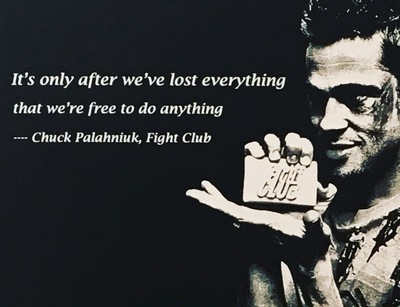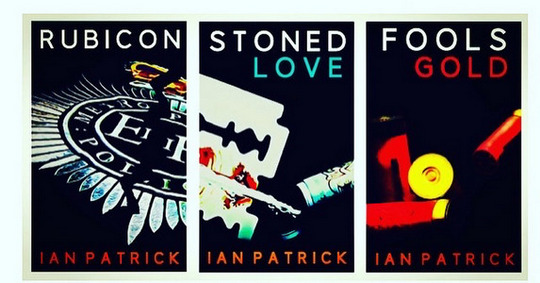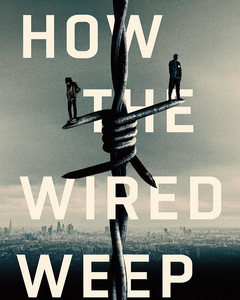
There’s a Reason I Write
by Ian Patrick Robinson
 In 1996 I was reading the hardback edition of Fight Club. This is the only book that’s really resonated with me. The power of the language and the themes it explored have stood the test of time. If you’ve seen the film then it would be easy to think the book’s all about toxic masculinity – it’s far from that.
In 1996 I was reading the hardback edition of Fight Club. This is the only book that’s really resonated with me. The power of the language and the themes it explored have stood the test of time. If you’ve seen the film then it would be easy to think the book’s all about toxic masculinity – it’s far from that.
The following is my own opinion based on reading the book many times. It’s not to be considered in any way a critique worthy of note. So, without trying to give any spoilers, here’s my take on the book that resonated with me in 96.
The narrator’s going through what could be described as existential angst. He’s in a job he hates and can see no way out of until he meets Tyler Durden, a soap salesman who introduces him to his take on life. In 1996, I was six years in a police career that would last twenty-seven. I was young, but not what I would consider to be impressionable. I was working in the Criminal Investigation Department where the regular fallout of many a punch up would await me in the cells each morning. Each one with a tale of innocence to tell. Innocent until proven guilty, that is.
It was a time where CCTV wasn’t prominent, mobile phones weren’t a thing, and pagers were only beginning to come in. It was a time of face-to-face engagement, or you picked up a landline and had a conversation. Witness statements were taken on paper and interviews were just beginning to be taped—yes, taped. Fight Club was all about conversation—conversations between the narrator and those he would seek in self-help groups he didn’t belong to. Conversations with all walks of life who’d come together to fight, to bond, to express their desire for freedom, freedom from expectations of conformity to the “norm” and freedom to be themselves.
Every individual I came in contact with had a choice of how they would react at the time prior to committing the offence. They just didn’t take the option of least resistance. There are many quotes in Fight Club that the author, Chuck Palahniuk, nailed. Google them to see the best, or better still read the book.
In 2015 I was diagnosed with an incurable muscle-wasting condition. A condition with no name that fell under the umbrella of Muscular Dystrophies.
My policing career was over after 27 yrs. Yes, I could have stayed on doing a desk job, but that wasn’t why I joined. Now I write books. Books of crime fiction and I’m working on others that aren’t. Rubicon, Stoned Love, Fools Gold, and How the Wired Weep are my attempt at urban noir. Latent Damage, Cover Blown, and Shots Fired a stab at police procedural.
There’s a reason I write and that’s due to Chuck Palahniuk’s Fight Club:
“It’s only after we’ve lost everything that we’re free to do anything.”
What will you do?

Header image by jplenio from Pixabay
![]()




